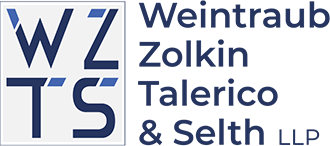Dealing with overwhelming debt can be an incredibly stressful experience. While bankruptcy may provide a way out, it's crucial to be aware of the alternatives that can potentially harm your financial situation. In this comprehensive guide, we will explore the most common alternatives to bankruptcy and provide tangible tips to help you avoid falling into their traps.
1. Negotiating Debt Settlements: Understanding the Risks
Debt settlement companies often promise to negotiate with your creditors to reduce the amount you owe. However, these companies may charge exorbitant fees and fail to deliver on their promises. Before considering debt settlement, it's important to understand the potential risks involved.
Tips:
- Research and choose a reputable debt settlement company, preferably one affiliated with industry associations like the American Association for Debt Resolution (AADR).
- Understand the potential tax implications and credit score impact of debt settlement.
- Consider consulting with a bankruptcy attorney to explore all available options.
2. The Dangers of Borrowing from Retirement Funds
When faced with mounting debts, borrowing from your retirement funds might seem like a quick solution. However, this decision can have severe long-term consequences, jeopardizing your retirement savings.
Tips:
- Explore alternative options such as debt negotiation, debt management plans, or bankruptcy before tapping into your retirement funds.
- Consult with a financial advisor to understand the potential tax implications and long-term impact on your retirement goals.
- Consider seeking legal advice to assess the best course of action for your specific financial situation.
3. Beware of Credit Counseling Scams
Credit counseling agencies claim to provide guidance and support in managing your debts. However, not all credit counseling agencies have your best interests at heart. It's crucial to be able to identify reputable agencies and avoid falling victim to scams.
Tips:
- Choose a credit counseling agency that is a member of the National Foundation for Credit Counseling (NFCC) or the Financial Counseling Association of America (FCAA).
- Research and read reviews to ensure the agency has a good reputation and a track record of helping individuals with their financial challenges.
- Be wary of agencies that charge excessive fees or pressure you into signing up for additional services.
4. The Truth About Debt Consolidation Loans
Debt consolidation loans can seem like an appealing option to simplify your payments and reduce interest rates. However, it's important to carefully evaluate the true cost of these loans and consider alternative debt management strategies.
Tips:
- Compare interest rates, fees, and repayment terms from various lenders before committing to a debt consolidation loan.
- Explore other debt management options such as credit counseling, debt negotiation, or bankruptcy to determine the best course of action for your specific situation.
- Consult with a bankruptcy attorney to fully understand the potential benefits and drawbacks of debt consolidation loans.
5. Recognizing the Risks of Payday Loans
Payday loans may seem like a quick fix for immediate cash needs, but they often come with exorbitant interest rates and fees. Breaking the cycle of payday loan debt is essential to regain control of your finances.
Tips:
- Explore alternative options such as personal loans from reputable lenders, borrowing from friends or family, or negotiating payment plans with your creditors.
- Consider credit counseling to help you develop a realistic budget and repayment plan.
- If you find yourself trapped in payday loan debt, consult with a bankruptcy attorney to explore potential solutions.
Don't Hesitate to Contact an Attorney
Bottom line: if you're dealing with serious debt, it's important to make informed decisions that will protect your financial future. If you're unsure about the best course of action for your specific situation, it's always wise to consult with a qualified bankruptcy attorney.
At Weintraub Zolkin Talerico & Selth, our experienced bankruptcy attorneys are here to guide you through the complexities of bankruptcy law. Contact us online or call (310) 220-4147 to schedule a consultation and explore the best solution for your financial challenges.


